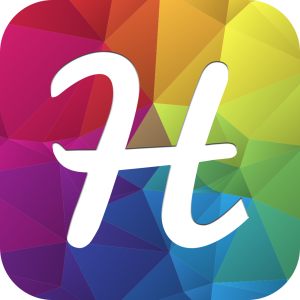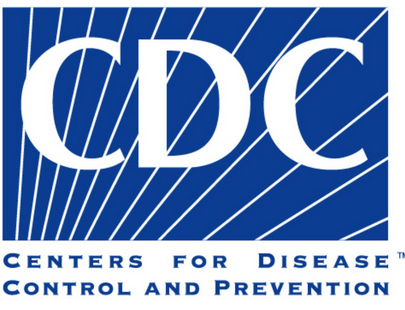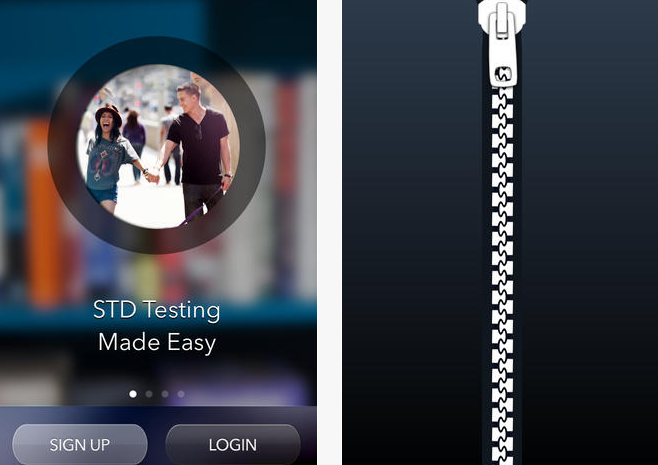 Oct. 30, 2014 Update! With ‘healthy Halloween’ tweets on Twitter, I checked back on my own post here to see why it’s getting a spike in ‘retweet’ circulation, and now see there’s been huge press lately from Good Morning America to NPR, VentureBeat and beyond this fall, so congrats to Healthvana for media making a difference in public health! (An entire HealthBeat Conference just wrapped this week where they participated)
Oct. 30, 2014 Update! With ‘healthy Halloween’ tweets on Twitter, I checked back on my own post here to see why it’s getting a spike in ‘retweet’ circulation, and now see there’s been huge press lately from Good Morning America to NPR, VentureBeat and beyond this fall, so congrats to Healthvana for media making a difference in public health! (An entire HealthBeat Conference just wrapped this week where they participated)
Trick or treat in the safe sex health literacy realm has lasting implications…so here’s to wellness, wisdom, and ‘no surprises.’
July 19, 2014 Forget for just a second that the term ‘hookup’ in youth culture has a plethora of meanings (from scoring back stage tickets, to making out and beyond) and fast forward to the CDC health facts of ages 15-24 year old youth at increased risk for STDs (over half of new cases are in this demographic, 1 in 4 numbers) and you’ll see why the newly renamed Healthvana, is a much needed tool that has come of age.
Healthvana, formerly known as Hula, (which has thankfully renamed their app to address the cultural insensitivity to native Hawaiians, and deserves corporate accountability kudos for listening, responding and ultimately, ‘doing the right thing’) has relaunched as an age 17+ public health meets technology interplay that raises the bar in personal health literacy and self-protection.
In essence, Healthvana is offering a simple way to obtain and share verified test results…With the CDC reported incidence, prevalence, and cost of STDs/STIs in the United States, their new tagline “Beautiful Products. Healthier Patients” resonates as a positive public health “win” particularly with “textually active” mobile media users.
More good public health news?
The HIV diagnosis rate fell by a third over the past decade, Modern Healthcare reports as experts cautiously celebrate the slow down of AIDS infections in the U.S.
Could education and prevention finally be paying off, even with all the media focus on ‘hookups’ and dating apps which have garnered tons of press? (all call for a heavy dose of “critical thinking” as this piece from Minding the Campus reminds with a bounty of rich links and prose)
Parents AND youth have been receiving media whiplash with the ‘perception vs reality’ lens of whether “hookup culture” is being amplified or whether it’s just different communication/media methods continuing to fan the flames of curiosity, despite factual reports of safer, more responsible public health/youth behaviors.
As comedian Conan O’Brian deadpans:
“For months now, I’ve been listening to all the young people in my office talk about Tinder, a social networking site where you find people in your area you’ve never met, that are in your vicinity who are ready to meet, and maybe hookup…”
As hilarity ensues, Conan gives a hands-on demo of Tinder with Hollywood heartthrob Dave Franco by joining the app under an alias name…”Heads up, parents”…You’re about to have a ‘teaching moment’ yourself.
This video is actually a VERY helpful health literacy tool to get up to speed on how the booming multibillion dollar business of dating apps work!
In fact, the YouTube itself is “must see comedy” for parents…Why?
If knowledge is power, it pays for parents AND youth to be informed, not go the ostrich route with the outdated ‘no news is good news’ dodgeball game. Pew Internet reports 1 in 5 young adults 25-34 use online dating, which quickly skews into a much younger demographic of collegiates and older teens. (here’s a rundown of a few of the most popular dating apps via Platform for Good)
So what does this have to do with Healthvana?
In an era of dating apps…plenty.
Though Healthvana is listed as a 17+ aged app there’s plenty of data for why prevention and education matters, just take a peek at the CDC life stages and population data. I’ll need to circle back with Healthvana to glean specific answers to the age barriers/demographic access from a health provider perspective, but the overlap of educational “need” is readily apparent.
Youth/tech + health/wellness
 As I wrote prior, citing Time magazine’s Healthvana article and these CDC stats:
As I wrote prior, citing Time magazine’s Healthvana article and these CDC stats:
“20 million new STDs are diagnosed in the U.S. every year and costs $16 billion in medical costs annually” along with knowledge that “half of new STDs occur in ages 15-24”
This is important data to be aware of at any age, much less the most vulnerable population of 15-24. (See a wide array of public health/prevention data at YTH.org…)Further:
From a public health perspective, youth are consistently using digital tools to access important data about sexual health AND are eager to protect their personal privacy as they search for prevention of STD/STI, HIV, and pregnancy/reproductive rights, and it’s IMPERATIVE they receive accurate, accessible and actionable information.
Healthvana Inc’s mission is to build “beautiful software that helps people make well-informed health decisions,” with key functionality being the acquisition and sharing with partners the results of tests through their mobile app.
It seems like a logical ‘must have’ for time-stamping and authenticating sensitive test results in the Health2.0 arena of our times, with all the privacy encryption and hack attack concerns taken into consideration for the app’s usability.
 Healthvana is partnering with some of the largest healthcare providers in the country to help empower patients to get their own personal health data records and has secured a partnership with one of the most widely respected HIV organizations in the country to bring results directly to patients, fast. (announcement coming soon, I’m told)
Healthvana is partnering with some of the largest healthcare providers in the country to help empower patients to get their own personal health data records and has secured a partnership with one of the most widely respected HIV organizations in the country to bring results directly to patients, fast. (announcement coming soon, I’m told)
CEO/Founder Ramin Bastani echoed the need for air tight HIPAA-compliant security in a “simple, beautiful, seamless, minimalist app” that could potentially promote behavior change and public health safety via intuitive, updatable data in a patient’s hands.
Will Healthvana ALSO be partnering with ‘3rd party platforms’ like dating apps and the Tinders of the world? The Conan and crew clip may be funny, but CDC youth surge in STDs is no laughing matter, so an alliance like this seems like a sensible solution to at least consider adding into building a ‘prevention toolbox’ with heavy youth sexuality in the digital age research as this YTH.org awareness post urges specifically for the prevention and treatment of STD/HIV.
After all, one of the biggest lags in data aggregation and digital health/privacy to date has been a software solution making it easier for patients to access their records and lab reports without hoop jumping through multiple providers and pay points…Indeed Bastani there’s much in the works and is hoping Healthvana will not only encourage more frequent testing, reporting and updates but remove stigma toward a massive overhaul in behavior change so that youth take a proactive what to know before you go approach to sexual health using mobile connectivity as a conduit for safety and health literacy…
As I wrote in my last article about this app, some parents may think,
“Hey, if youth are old enough to have sex, they’re old enough to talk about it without a mobile app shyness shield to deliver their health status”…
I’d concur, but add that if this ‘disruptive health care’ app works to upend public health with informed consent and best practices in youth safety…I support it fully.
We all know the youth surge in mobile devices opens a mass market for safer sex interventions and prevention protocols impacting students in a huge way, so if Healthvana can deliver on its peace of mind platform to get accurate, reliable data into a well-designed tool that can be at the forefront of the college campus health safety scene as well as the ‘dating app’ revolution, so much the better.
From free STD testing locators and mobile mapping to all the FAQ emerging about verifications, privacy, and health providers, Healthvana will be one to watch to turn a ‘no news is good news’ frame of mind into a more proactive e-record retrieval of results.
I’ll be interested to hear more of how this uber-sensitive HIPAA-compliant encryption is handled in the security sphere.
For parents of 17+teens and collegiate youth it’s a ‘brave new world’ out there…
Hopefully personal access to private health data could help begin to make it a safer one.
Ommmmmm.








Speak Your Mind